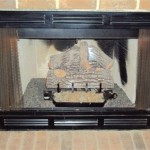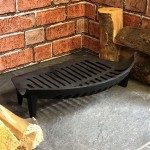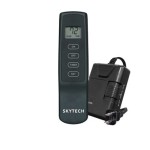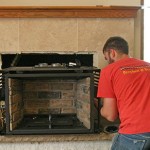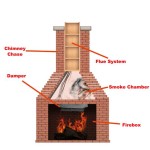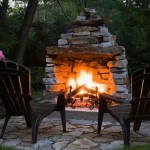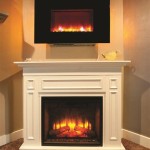Blowers for Gas Fireplaces: Enhancing Efficiency and Comfort
Gas fireplaces offer a convenient alternative to traditional wood-burning fireplaces, providing ambiance and warmth with the simple flick of a switch. However, a significant portion of the heat generated by a gas fireplace can often rise directly into the chimney, resulting in less effective room heating. This is where blowers for gas fireplaces become highly beneficial. These devices, also known as fireplace fans or heat circulators, are designed to distribute the heat more efficiently throughout the room, maximizing the fireplace's heating potential and improving overall comfort.
A gas fireplace blower is typically a small, electric fan unit that is installed within the fireplace enclosure, usually at the bottom or rear. Its primary function is to draw cool air from the room, pass it over the heated firebox or heat exchanger of the fireplace, and then expel the warmed air back into the room. This forced-air circulation helps to prevent heat from stratifying near the ceiling and ensures a more even temperature distribution throughout the living space.
The use of a blower can dramatically improve the heating performance of a gas fireplace, particularly in larger rooms or open-concept living areas where natural convection alone may not be sufficient to distribute heat effectively. By circulating the heated air, blowers also reduce the amount of time required to warm a room, contributing to energy savings and enhanced comfort during colder months.
Key Benefits of Using a Blower for Your Gas Fireplace
Using a blower with a gas fireplace offers multiple advantages, ranging from improved heating efficiency to enhanced comfort and potential cost savings. Understanding these benefits can help homeowners make informed decisions about whether adding a blower to their gas fireplace setup is a worthwhile investment.
One of the most significant benefits is improved heating efficiency. Without a blower, a substantial amount of heat generated by the fireplace can escape through the chimney before it has a chance to adequately warm the room. A blower helps to capture and redistribute this heat, ensuring that more of the thermal energy is used to warm the living space. This improved efficiency translates to a more comfortable environment and potentially lower heating bills.
Another key advantage is the enhanced comfort it provides. By distributing heat more evenly, a blower eliminates hot spots near the fireplace and cold spots further away. This uniform temperature distribution creates a more comfortable and pleasant living environment, especially during colder weather. This is particularly beneficial in larger rooms where natural convection alone may struggle to maintain a consistent temperature. Gas fireplace blower is a tool that can create a more comfortable and inviting atmosphere in any home.
Blowers can also contribute to faster room heating. By actively circulating the air, they speed up the process of warming a room compared to relying solely on natural convection. This is especially helpful when quickly heating a room after turning on the fireplace or when maintaining a consistent temperature in a room that experiences significant temperature fluctuations. The ability to rapidly warm a room is a valuable benefit for those seeking immediate comfort and warmth.
Types of Gas Fireplace Blowers
Gas fireplace blowers are available in several different types, each with its own design, features, and performance characteristics. Understanding these differences can help homeowners select the blower that best suits their specific fireplace model and heating needs.
The most common type of blower is the tangential or squirrel cage blower. These blowers feature a long, cylindrical fan that spans the width of the fireplace firebox. They are known for their quiet operation and ability to move a large volume of air at a relatively low speed. Tangential blowers are often used in larger gas fireplaces where significant heat output requires a substantial airflow for effective distribution.
Another type of blower is the centrifugal blower. These blowers utilize an impeller with blades to generate airflow. Centrifugal blowers are typically more compact than tangential blowers, making them suitable for smaller fireplace models or installations where space is limited. They often produce higher airflow speeds, which can be advantageous in certain applications, although they may also generate slightly more noise.
Some blowers are designed as universal models, meaning they can be adapted to fit a wide range of gas fireplace models. These blowers often come with adjustable mounting brackets or installation kits to accommodate different fireplace dimensions and configurations. Universal blowers can be a convenient option for homeowners who are unsure of the exact blower model required for their fireplace.
Specific models of gas fireplaces may also have dedicated blowers designed specifically for them by the manufacturer. These blowers are engineered to integrate seamlessly with the fireplace's design and features, ensuring optimal performance and compatibility. Using a dedicated blower can often simplify installation and guarantee the best possible heating efficiency.
Factors to Consider When Choosing a Gas Fireplace Blower
Selecting the right blower for a gas fireplace requires careful consideration of several factors, including the fireplace model, room size, desired heating performance, and budget. Evaluating these factors will help homeowners choose a blower that meets their specific needs and provides optimal performance.
Compatibility with the fireplace model is paramount. It is essential to ensure that the blower is compatible with the specific make and model of the gas fireplace. This information can typically be found in the fireplace's owner's manual or by contacting the manufacturer. Using an incompatible blower can lead to poor performance, overheating, or even damage to the fireplace.
Room size is another crucial factor to consider. The size of the room in which the fireplace is located will determine the required airflow capacity of the blower. Larger rooms will require a blower with a higher CFM (cubic feet per minute) rating to effectively distribute heat throughout the space. Selecting a blower with insufficient airflow capacity can result in inadequate heating and uneven temperature distribution.
The desired heating performance is also a key consideration. If the primary goal is to maximize the fireplace's heating efficiency and reduce energy consumption, a blower with a high CFM rating and efficient motor is recommended. If the focus is on maintaining a comfortable and consistent temperature in the room, a blower with adjustable speed settings may be preferable. These settings allow the user to fine-tune the airflow to match their specific heating needs.
Budget is always a factor in any purchasing decision. Gas fireplace blowers range in price depending on their type, performance, and features. It is important to establish a budget and compare prices before making a purchase. While it may be tempting to opt for the least expensive blower, investing in a higher-quality model can often provide better performance and longevity in the long run. Online reviews and comparisons are helpful tools in the researching and purchasing phase.
Noise level is an important factor, too. Blowers can range from very quiet to distractingly loud. If noise is a concern, look for tangential blowers or variable-speed blowers that can be run at a lower, quieter setting. It's generally best to read reviews from other customers to get a sense of real-world noise levels for a given model.
Installation considerations are vital. Some blowers are easy to install with basic hand tools, while others might require professional installation. Consider personal comfort level with DIY projects and the complexity of the intended installation before making a purchase. Improper installation can be dangerous and may void any warranty on the fireplace or blower.
Finally, consider features like automatic on/off settings, thermostat control, and remote operation. While not essential, these features can add convenience and improve the overall user experience. Automatic features help the blower operate only when the fireplace is hot enough, preventing cold air from being blown into the room.
By carefully considering all of these factors, homeowners can select a gas fireplace blower that provides optimal heating performance, meets their individual needs, and enhances the comfort and enjoyment of their living space.

Fireplace Efficiency Blowers And Why You Should Have One

Noisy Gas Fireplace Blower Here S How To Replace It Diy

Why Should I Get A Fireplace Blower For My Masonry

How Does A Fireplace Blower Work Learn About Blowers

Installing A Fireplace Blower Gfk4 Gfk4a In Heatilator Natural Gas

Do Gas Fireplaces Need A Blower Fireplace Tips

Fireplace Blowers Explained How Fans Work Regency

How To Buy A Gas Fireplace Insert Buyer S Guide From Regency

When Does A Fireplace Blower Turn On Or Off Tips

Why Do I Need A Blower Fan On My Fireplace We Love Fire

